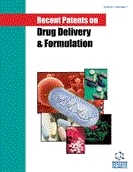Abstract
Quality assurance and evaluation of fast dissolving/disintegrating dosage forms (FDDFs) require conduct of various pharmacopoeial and non-pharmacopoeial tests and their compliance to acceptance limits. Dosage forms specific and non-specific tests include assessment for hardness, weight variation, assay, content uniformity, friability, disintegration, dissolution, etc. Highly porous nature of fast disintegrating/ dissolving tablets (FDTs) makes them brittle and fragile. Friability limits for FDTs are generally higher than the friability limits of conventional tablets. Newer tests, methodologies and equipments have been devised for evaluation of in vitro disintegration/ dissolution and to simulate in vivo conditions of the oral cavity. Drug dissolution/release studies are also required to be conducted in a manner so as to simulate in vivo oral conditions to ensure reproducibility of batches. The developed drug release tests and explored methodologies are correlated to in vivo disintegration/ dissolution for their wider acceptance and future incorporation in pharmacopoeia. Taste masking and palatability of FDDFs are evaluated during drug development and stability studies. Some of these evaluation tests have been incorporated in regulatory guideline and/or pharmacopoeia, while some others are in development phases. This chapter provides a comprehensive overview on various quality control/assurance tests for evaluation of FDTs and capsules.
Keywords: Capsule, Content uniformity, Disintegration, Dissolution, Drug release, FDT, Friability, Gamma-scintigraphy, Hardness, OD-mate®, ODT, ODT- 101®, Palatability, Tablet, Taste, Texture analyser, Tricorptester®, Water absorption, Water content, Weight uniformity, Wetting time.






















